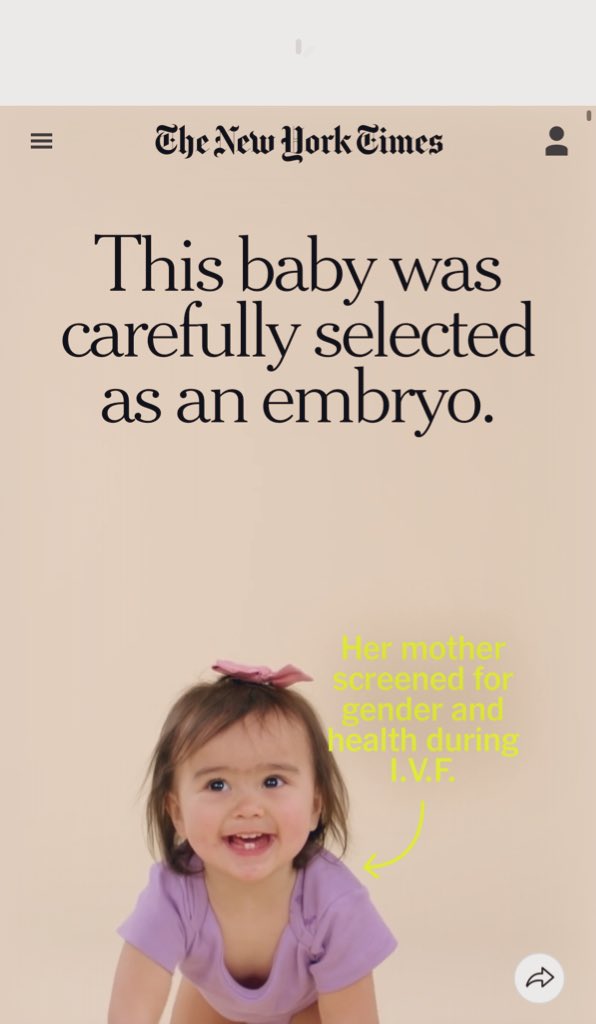
Helping everyone have a healthy baby @OrchidInc Prev Stanford CS, AI Lab, @thielfellowship
How to get URL link on X (Twitter) App


 If you could prevent your child from going blind — would you? From getting pediatric cancer at 5? From heart defects? Schizophrenia at 22?
If you could prevent your child from going blind — would you? From getting pediatric cancer at 5? From heart defects? Schizophrenia at 22?

https://x.com/noor_siddiqui_/status/1833219579725942868

 After about age 20, it becomes harder and harder to get pregnant for those who are trying.
After about age 20, it becomes harder and harder to get pregnant for those who are trying.
